Fig Tree Books
With the support of the publisher, Shelf Awareness introduces Fig Tree Books, the new press that publishes literary fiction chronicling and highlighting the American Jewish experience.
With the support of the publisher, Shelf Awareness introduces Fig Tree Books, the new press that publishes literary fiction chronicling and highlighting the American Jewish experience.
Fredric Price has spent a long, successful career as an entrepreneur in the biotech industry, where he has focused on developing drugs to treat "ultra-orphan" diseases--diseases with only a few hundred or thousand patients. Price has also had a lifelong passion for reading, which has included creating and helping to lead two groups focused on Jewish literature.
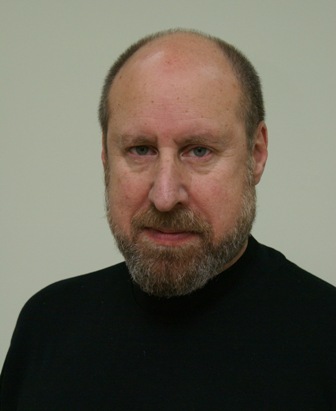 |
|
| Fredric Price | |
So when it came to deciding on his "second act," as he put it, Price applied many of the traits honed in business--strong analytic, market-oriented skills, a laser-like focus, and very high standards--toward his love of reading. The result is Fig Tree Books LLC, which launched its first list this month and is focusing on literary fiction about "the beautiful and sometimes challenging mosaic" of the American Jewish experience. For now, it will publish only literary novels, although short stories and nonfiction, including memoirs, may be added eventually. The authors can be emerging or established writers; most of the titles will be original, although some are reprints of classics long out of print. For now, Fig Tree aims to publish three lists a year of up to four titles on each list, nine to 12 books altogether. (In one of the many signs of the seriousness of this venture, Fig Tree is being distributed by PGW.)
"I spent my business life focusing on narrow slices," Price explained, referring to the marketing of drugs to treat rare diseases. "So when I decided to go into book publishing, my concept was to have a very laser-like focus and to do that well and do nothing other than that."
His narrow audience--Jews represent about 2% of the U.S. population--buys "a disproportionately greater amount of books" than their numbers, Price said. At the same time, "the fact that this is a small group in terms of number of readers/purchasers makes it easier, more efficient and less costly to target." And, of course, this doesn't count the many non-Jewish readers who will be interested in good, literary reads.
Price has worked deliberately and thoughtfully putting the company together. He wrote his first business plan in the summer of 2012, revised it repeatedly, worked with Ellis Levine, previously general counsel of Random House (who is now Fig Tree's corporate attorney), then began meeting agents, authors and others in the industry.
Early on, he connected with NPR's Alan Cheuse (his Prayers for the Living is Fig Tree's first title) and the estate of Meyer Levin. (Price is particularly proud of having Marcia Clark write the foreword to Levin's Compulsion. Clark said that the novel was the first she ever read, and one of her favorite books of all time.) The first list has a mix Price wanted: a classic book--Compulsion--as well as several original titles.
Goldberg McDuffie is handling publicity, and Neuwirth & Associates is handling production. "I don't want to bring those activities in-house," Price said. "I want us to concentrate on the intellectual property--the books." The company has an elegant website and is very focused on social media.
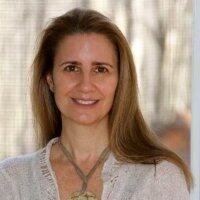 |
|
| Michelle Caplan | |
The "small, lean" staff of six is comprised of "incredibly smart people," Price said, "and I picked them because they didn't have traditional publishing experience. I wanted out-of-the-box thinking, not someone who'd say, 'This isn't the way things are done...' " Editor-in-chief Michelle Caplan was a freelance editor, who, Price noted, "has an unusually good ear for both the strategic (what the real message of a book should be) as well as the tactical (what needs to get done specifically to make a manuscript better)." Media editor Erika Dreifus is "an expert writer and player in the digital social media space who has an excellent instinct for dealing in the most appropriate way with authors, reviewers, bloggers and blurbers, no mean feat!" Director of marketing Kal Kaminer brings a decade of experience in film production and marketing, which enables him to have a very visual approach to bookselling. Editorial and publishing assistant Emily Greenberg has worked as an editorial assistant, Webmaster and IT director Matthew Price has developed and designed websites and solved complex IT problems for more than 14 years, and marketing coordinator Zak Block has experience as social media editor and designer of literary websites.
Stay in the know about Fig Tree Books and fiction of the American Jewish experience: sign up here for monthly updates about Fig Tree Books news, events, giveaways and books.
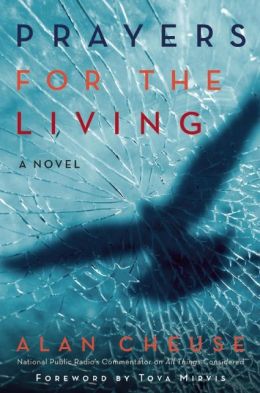
Manny marries, becomes a rabbi and fathers a daughter named Sarah. Though beloved by his community, Manny feels compelled to further his material success. He resigns from his temple to run his wife's family's shipping business. Manny's wealth soars while his family life disintegrates: his wife is driven to alcoholism and insanity by Manny's affair, while Sarah suffers a sexual assault on a college campus and her father offers inadequate support. Sarah then becomes the catalyst for his final, literal downfall by exposing his corrupt Central American business dealings.
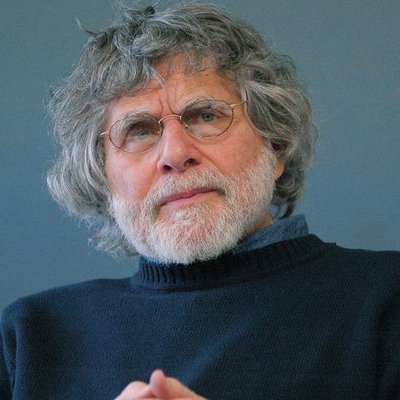 |
|
| Alan Cheuse | |
Prayers for the Living is inspired by a story Alan Cheuse read in the New York Times during the 1970s about the funeral of multimillionaire New York businessman and rabbi Eli Black. While he was head of United Brands fruit company, Black was exposed as having bribed the president of Honduras.
Tova Mirvis, author of The Ladies Auxiliary, writes in the foreword to Prayers for the Living that the book "could live happily next to Philip Roth's American Pastoral for its intensity and scope; in its portrait of familial unraveling, it would make a fine neighbor for Richard Yates's Revolutionary Road; with its rendering of immigrant experience, it ought to dwell in proximity to Anzia Yezierska's Bread Givers; its rich descriptive power suggests that it would share space well with Jonathan Franzen's The Corrections. Prayers for the Living is a novel with the weight of legend, the feel of myth."
Alan Cheuse has been a book reviewer for NPR's All Things Considered since the 1980s. He is the author of five novels, several short story and novella collections, and a memoir. Cheuse teaches writing at George Mason University near Washington, D.C., and leads fiction workshops at the Squaw Valley Community of Writers in California.
Digital galleys of Prayers for the Living are available through Edelweiss.
Judd Steiner and Artie Strauss are part of the up-and-coming elite of the Jewish community in 1920s Chicago. Their futures are bright, every conceivable advantage in life at their fingertips: wealth, intelligence, status. Genius introvert Judd is drawn to athletic Artie's charisma; they become best friends at the University of Chicago. The pair also share a darker secret: an obsession with Friedrich Nietzsche's theoretical übermensch, a super man unbound by society's petty ethics. Judd and Artie plot to prove their superiority by murdering a random neighborhood boy.
Sid Silver is a fellow student and fraternity brother of Judd and Artie. As a rookie journalist at the Chicago Globe, Sid investigates the murder of Paulie Kessler, which shocks Chicago into an obsessive hunt for the boy's killers. Judd and Artie crack under police interrogation, avoiding the death penalty only by a novel legal defense. Thirty years later, Artie dead in prison and Judd up for parole, Sid, still a reporter, interviews Judd, whose parole case may depend on Sid's article.
Compulsion is based on the infamous Leopold and Loeb case, considered the "crime of the century," in which a pair of privileged Jewish University of Chicago students killed a 14-year-old boy in 1924 just to prove their intellectual superiority. Author Meyer Levin was a reporter and fellow University of Chicago student at the time. First published in 1956, Compulsion found commercial and critical success (it has sold more than 1.15 million copies) and paved the way for other nonfiction novels like Truman Capote's In Cold Blood. In 1959, Compulsion was adapted into a film featuring Orson Welles.
In the foreword to this new edition, Marcia Clark, head prosecutor in the O.J. Simpson case and author of four Rachel Knight novels, said Compulsion "raises issues pertaining to society and our justice system--such as popular biases, groupthink, and the inherent, perhaps unfixable, flaws in our legal system--that are as much in evidence today as they were back then."
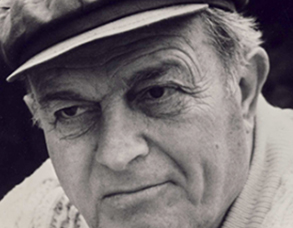 |
|
| Meyer Levin | |
In a new introduction, Meyer's son, poet and essayist Gabriel Levin, touches on the novel's groundbreaking depiction of homosexuality: "At a distance of close to a century from... when the crime took place, one cannot help being impressed by the candor with which homosexuality is treated. Indeed, one of the battles waged in court (if not the battle) between the state attorney and the defense lawyers lies precisely in the former's vilification of homosexuality... and the latter's appeal to a broader understanding of psychopathology. This may be a far cry from our own perceptions of homosexuality... but the general display of tolerance... may well have contributed to the first, tentative signs of normalization of gay relations in America in the mid-fifties."
Meyer Levin admitted a sort of kinship with Leopold and Loeb as another "young, intellectual Jew," but one who made very different choices: "I... had turned my precocious energy into accomplishment; they, the rich south siders, turned the same qualities toward destruction." In his introduction, Gabriel Levin notes that "this wary kinship... would provide my father with the analytic and sympathetic tools [to enter] the mind of Judd Steiner."
After graduating from the University of Chicago, Meyer became a reporter for the Chicago Daily News. He wrote 20 fiction and nonfiction books, including a novelization of the life of Frank Lloyd Wright, The Architect, published in 1981, the year he died.
Digital galleys of Compulsion are available through Edelweiss.
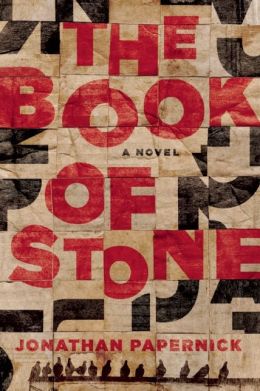
Matthew Stone cannot escape his family's dark past. His father, once a respected New York judge, had his reputation tarnished by accusations of jurymandering in a race-related murder trial. His grandfather was a successful hit man in Murder, Inc., the Mafia's enforcement arm in the 1930s and '40s. Both men supported right-wing terror groups in Israel. When his father dies, Matthew is forced to confront this legacy through a collection of inherited books and a cast of shady characters who propel him toward a disastrous fate.
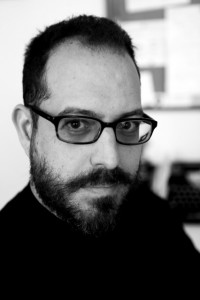 |
|
| Jonathan Papernick | |
Toronto native Jonathan Papernick is the author two short story collections, The Ascent of Eli Israel and There Is No Other. His stories have also appeared in Exile, the Sarah Lawrence Review, the Reading Room, Nerve.com, Memorious, Zeek, Night Train Magazine and Confrontation, and have been anthologized in Lost Tribe: Jewish Fiction from the Edge and Scribbles on the Roof. He has taught writing at the Center for Creative Youth at Wesleyan University, Pratt Institute, Boston University and Grub Street. He has been the Fannie Hurst writer-in-residence at Brandeis University and the visiting writer-in-residence at Bar Ilan University in Israel. Papernick has an MFA in creative writing from Sarah Lawrence College.
Digital galleys of The Book of Stone are available through Edelweiss.
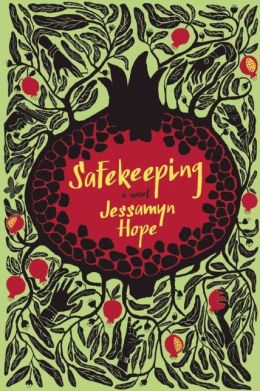
Drug-addicted New Yorker Adam, last descendant in the brooch's line of inheritance, steals the jewel from his grandfather to pay his crack dealer. Adam's grandfather suffers a fatal heart attack when he discovers the theft, sending Adam on a journey of atonement. He must deliver the brooch to his grandfather's chosen heir--a woman he fell in love with in a displaced persons camp after World War II.
Adam's quest takes him to a kibbutz in Israel, where he lives among a cast of damaged souls. He meets Ofir, a soldier wounded in a suicide bombing; Eyal, a socialist fighting to save the kibbutz from privatization; Ulya, a refugee of the Chernobyl disaster; and Claudette, an obsessive-compulsive French-Canadian orphan. During a sweltering summer, Adam grows closer to these outcasts and eventually finds redemption.
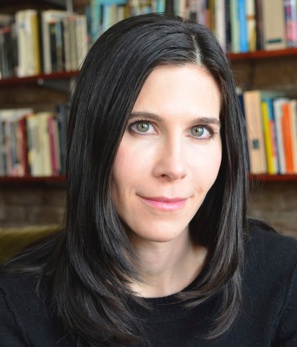 |
|
| Jessamyn Hope | |
Jessamyn Hope's own experiences add authenticity to Safekeeping. Daughter of an Italian mother and South African father (himself the grandson of Lithuanians), Hope grew up in Montreal before living on her cousin's kibbutz and eventually moving to New York City. Chapters from Safekeeping have appeared in Descant magazine and Green Mountains Review, which earned Hope a nomination for the 2012 Pushcart Prize and an invitation to be the Susannah McCorkle Scholar in Fiction at the 2012 Sewanee Writers' Conference. Other stories and essays have appeared in Five Points, Colorado Review, Harpur Palate, Prism International and Ploughshares. She has a creative writing MFA from Sarah Lawrence College and teaches writing at Grub Street.
Digital galleys of Safekeeping are available through Edelweiss.